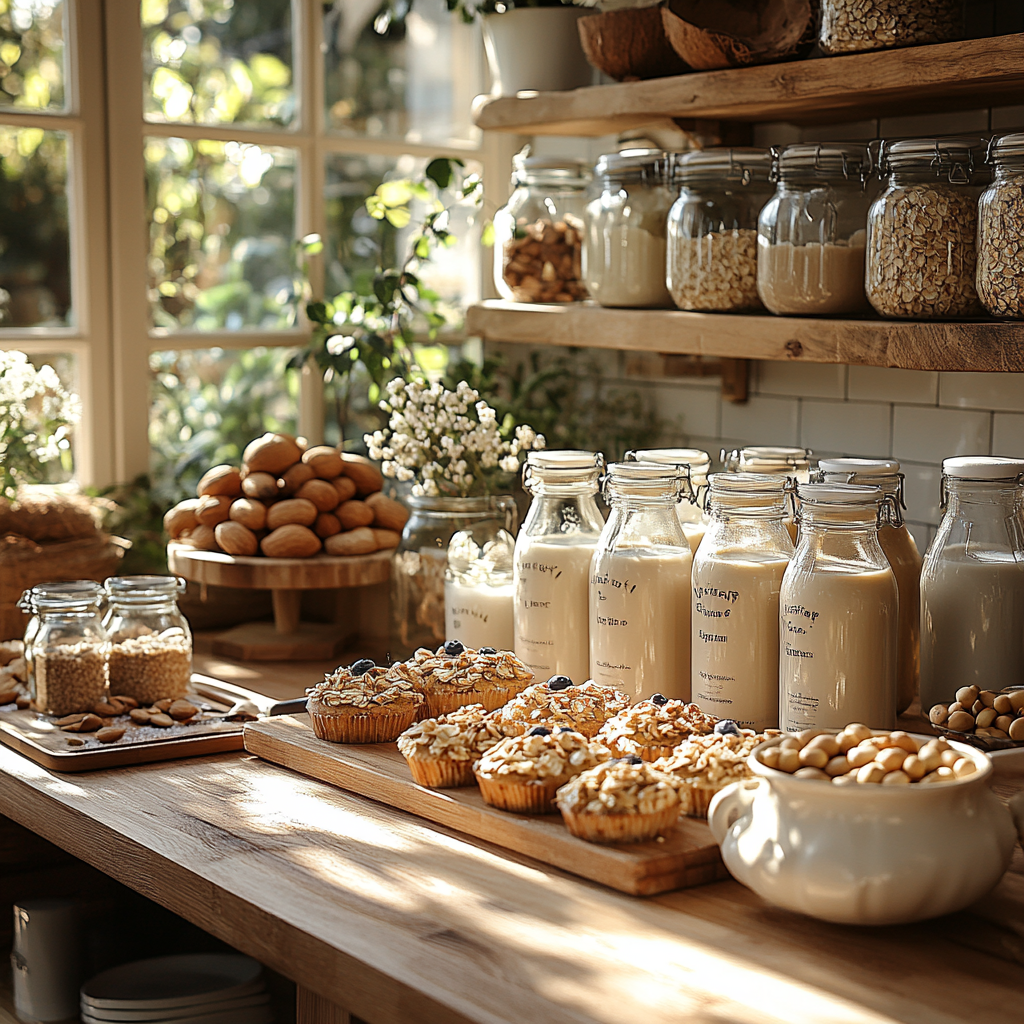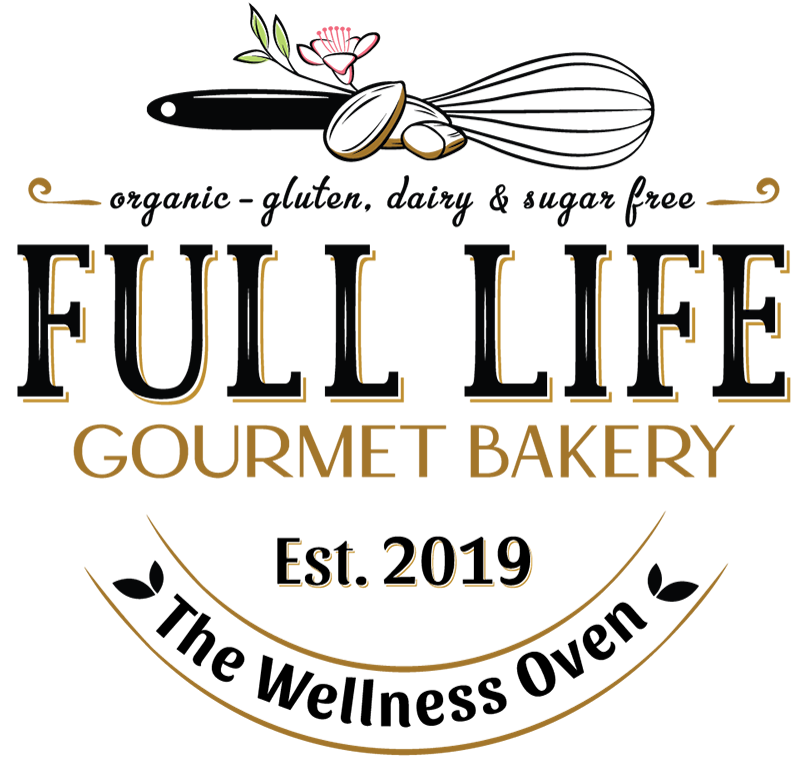
In recent years, dairy-free diets have gained significant traction, not only among those with lactose intolerance but also among health-conscious individuals looking to make better choices for their bodies and the environment. With an ever-growing variety of plant-based milk alternatives—like almond, coconut, oat, and soy milk—many people are opting to transition to dairy-free lifestyles, especially in baking and cooking. But how do these alternatives compare to traditional dairy in terms of nutrition, flavor, and functionality?
This article dives deep into the world of dairy-free substitutes, offering practical tips for using them in your everyday meals. Whether you’re looking to improve your family’s health or lower your environmental footprint, this guide will provide the insights and tools you need to seamlessly incorporate dairy-free ingredients into your kitchen.
Along the way, we’ll highlight four delicious recipes that make using these dairy-free alternatives effortless and flavorful. From Almond Milk Blueberry Muffins for a healthy baking treat, to a creamy Coconut Milk Thai Red Curry Soup for cozy dinners, to a nutrient-packed Oat Milk Banana-Avocado Smoothie for an energizing start to your day, and finally, fluffy Soy Milk Vegan Pancakes for a family-friendly breakfast, you’ll find practical ways to incorporate these plant-based options into your daily routine.
In addition to the nutritional benefits, we’ll also explore the challenges and opportunities of going dairy-free. While the transition may come with some initial hurdles—such as finding the right milk alternative for your taste or ensuring you meet your protein needs—the growing variety of plant-based options makes this shift easier than ever. This guide will help you navigate the process, whether you're making the switch for health, environmental, or ethical reasons.
A) Baking: Almond, Oat, or Soy Milk
In baking, almond, oat, and soy milk can be used as direct substitutes for cow’s milk in cakes, muffins, and breads. These plant-based options maintain moisture and flavor, providing a satisfying, dairy-free alternative. Coconut milk adds richness, making it perfect for more decadent desserts like brownies and frostings.
Almond Milk Blueberry Muffins
These light and fluffy muffins are perfect for a dairy-free breakfast or snack.
-
Ingredients:
- 1 ½ cups almond milk
- 2 cups flour (can be gluten-free)
- 1 cup fresh blueberries
- ½ cup coconut oil (melted)
- ½ cup maple syrup
- 2 tsp baking powder
- 1 tsp vanilla extract
- Pinch of salt
-
Instructions:
- Preheat oven to 350°F (175°C) and line a muffin tin with paper liners.
- Mix the dry ingredients in a large bowl and the wet ingredients in another.
- Combine the two and fold in blueberries.
- Pour the batter into muffin liners and bake for 20-25 minutes or until golden.
- Let cool before serving.
B) Soups and Sauces: Coconut or Soy Milk
Replacing cream with coconut milk in soups or soy milk in savory sauces allows you to retain the creamy texture of traditional dairy dishes without the heavy fat content. Coconut milk, in particular, adds a rich, velvety texture and a slight sweetness to enhance soups, while soy milk works well in savory sauces due to its neutral flavor.
Coconut Milk Thai Red Curry Soup
A flavorful, creamy soup perfect for a cozy family dinner.
-
Ingredients:
- 1 can coconut milk
- 2 tbsp red curry paste
- 4 cups vegetable broth
- 1 cup mushrooms (sliced)
- 1 red bell pepper (sliced)
- 1 tbsp fresh ginger (grated)
- 1 tbsp soy sauce or tamari
- Fresh cilantro and lime for garnish
-
Instructions:
- In a large pot, sauté ginger and curry paste for 2 minutes.
- Add coconut milk and vegetable broth, then bring to a simmer.
- Stir in mushrooms, bell pepper, and soy sauce.
- Simmer for 10-15 minutes until vegetables are tender.
- Garnish with cilantro and lime, and serve.
C) Smoothies and Coffee: Almond or Oat Milk
Almond and oat milk are both great for blending smoothly into morning smoothies and coffee drinks. These dairy-free alternatives offer a light, creamy texture with a natural sweetness that pairs perfectly with fruit or coffee.
Oat Milk Banana-Avocado Smoothie
A creamy, dairy-free smoothie packed with nutrients for an energizing start to your day.
-
Ingredients:
- 1 cup oat milk
- 1 ripe banana
- ½ ripe avocado
- 1 tbsp chia seeds
- 1 tsp honey or maple syrup
- Ice cubes (optional)
-
Instructions:
- Blend all ingredients until smooth.
- Adjust sweetness to taste with honey or syrup.
- Pour into a glass and enjoy.
D) Pancakes and Waffles: Plant-Based Alternatives
Pancakes and waffles are breakfast staples, and you can easily swap out cow’s milk for your favorite plant-based alternative like almond, oat, or soy milk. The result is a fluffy, delicious, dairy-free breakfast the whole family will enjoy.
Soy Milk Vegan Pancakes
Fluffy and delicious pancakes made without dairy but packed with flavor.
-
Ingredients:
- 1 cup soy milk
- 1 cup all-purpose flour (can be gluten-free)
- 1 tbsp sugar
- 2 tsp baking powder
- 2 tbsp vegetable oil
- Pinch of salt
-
Instructions:
- In a bowl, whisk together flour, sugar, baking powder, and salt.
- Add soy milk and vegetable oil, stirring until just combined (don't overmix).
- Heat a non-stick skillet over medium heat and pour in the batter (about ¼ cup per pancake).
- Cook until bubbles form on the surface, then flip and cook until golden brown on both sides.
- Serve with maple syrup and fresh fruit.
Challenges and Opportunities of Going Dairy-Free
While there are many benefits to eliminating dairy, some challenges may arise, especially for families used to traditional dairy-based recipes. One potential drawback is the lower protein content of some plant-based milks like almond or coconut milk, which may not satisfy everyone’s nutritional needs. However, this can be easily balanced by incorporating more protein-rich foods into your meals, such as legumes, tofu, or quinoa.
Another challenge might be the flavor differences. Plant-based milks can have unique tastes that differ from cow’s milk. The key is to experiment with different types and brands until you find one that suits your taste preferences. Many families find that after transitioning, they actually prefer the lighter, fresher flavor of dairy-free alternatives.
At the same time, the variety of options in the plant-based milk market provides many opportunities. As more people seek healthier and more sustainable lifestyles, dairy-free alternatives have become widely available and affordable, making it easier than ever to make the switch. Families can not only support better health but also contribute to environmental sustainability by reducing their reliance on dairy products.
Conclusion: A Healthier, Greener Lifestyle
The shift toward a dairy-free lifestyle is not just a trend—it’s a meaningful change for those seeking better health and a more sustainable planet. By embracing dairy-free alternatives like almond, coconut, oat, and soy milk, families can enjoy flavorful, nutritious meals while reducing their environmental impact. Whether you’re swapping dairy for health reasons, environmental concerns, or simply curiosity, incorporating plant-based ingredients into your kitchen is an easy and rewarding step toward a healthier life.
Make the switch today, and discover how delicious and fulfilling dairy-free living can be. And don’t forget to check out our next article on Sunday about “Raising Independent Kids: Teaching Responsibility and Independence in Age-Appropriate Ways”—because a healthy lifestyle starts with a healthy mindset for the entire family.
By Guillermo Brillembourg




